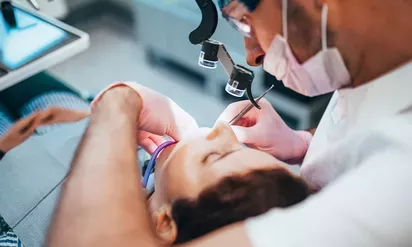
you need to know about Micro-Endodontics
Micro-endodontics is a relatively new field, and as such, there is still much to learn about it. In this blog post, we will explore everything you need to know about micro-endodontics. From what it is and what it does, to the benefits and risks involved, read on to learn more about this exciting new field of dentistry. To find the best dentist near you, visit Apollo Dental, Malda for expert advice on dental health.
What is Micro-Endodontics?
Micro-endodontics is a specialized field of dentistry that focuses on the diagnosis and treatment of dental conditions that affect the small, delicate structures inside the tooth. These structures include the pulp (the network of blood vessels and nerves that nourish and protect the tooth), the root canal (the hollow space inside the root that contains the pulp), and the periodontium (the tissues that support and anchor the tooth in place).
The Benefits of Micro-Endodontics
Micro-endodontics is a specialized type of endodontic treatment that uses very small instruments to access and treat the pulp chamber of teeth. This minimally invasive approach can provide many benefits for patients, including shorter treatment times, less discomfort, and quicker healing times. In some cases, micro-endodontics can even save teeth that would otherwise need to be extracted.
How is Micro-Endodontics performed?
Micro-endodontics is a minimally invasive endodontic treatment that uses small instruments and techniques to access and treat the tooth. This type of endodontic treatment is often used when the traditional, larger instruments cannot be used due to the size and location of the tooth. Micro-endodontics can be performed using both manual and rotary instruments. The most common type of micro-endodontic procedure is a root canal.
Risks and Complications
Patients undergoing micro-endodontic treatment may experience some risks and complications. These may include:
– Infection: There is a small risk of infection associated with any dental procedure. This can usually be treated with antibiotics.
– Pain: Some patients may experience mild discomfort during and after treatment. This can usually be controlled with over-the-counter pain medication.
– Swelling: Swelling is a common side effect of dental procedures, and is usually temporary. Ice packs can help to reduce swelling.
Conclusion
Micro-endodontics is a speciality of dentistry that deals with the diagnosis and treatment of teeth that have been damaged by decay or injury. This type of dentistry requires a high level of skill and knowledge, as well as the use of specialized equipment. Micro-endodontics can be used to treat both primary (baby) teeth and permanent teeth. If you think you may need micro-endodontic treatment, it is important to see an experienced dentist at Apollo Dental, Malda. Call 1800 1020 288 to book an appointment OR click on this link.
Avoid chewing on hard foods for at least 24 hours after the procedure. This will give your teeth and gums time to heal.
Micro-endodontics may be necessary when traditional endodontic treatment is not possible or has failed. It can also be used to treat teeth that are difficult to reach or have narrow root canals.
You may experience some mild soreness or tenderness in your teeth and gums for a few days after the procedure. This is normal and should resolve on its own.



















































